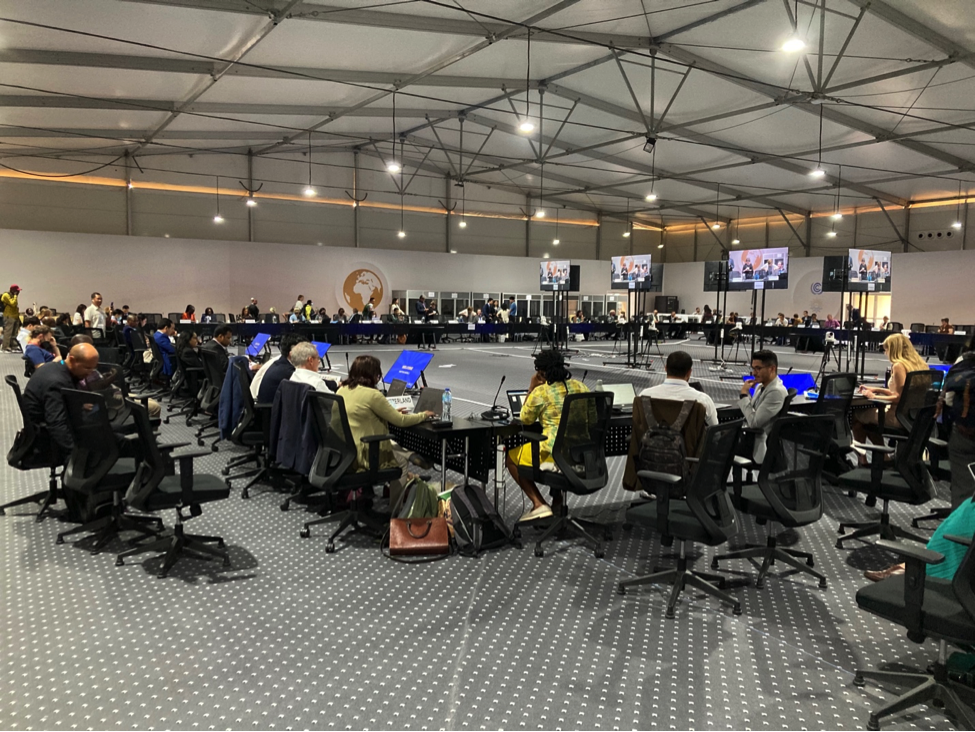 Difficult as it is to discuss global warming in the midst of a snowstorm (such as Copenhagen is experiencing right now), discussions proceed on multiple tracks, though “tracks” implies more linearity and parallelism than actually exists.
Difficult as it is to discuss global warming in the midst of a snowstorm (such as Copenhagen is experiencing right now), discussions proceed on multiple tracks, though “tracks” implies more linearity and parallelism than actually exists.
The hidden elephant (or polar bear) in many of the rooms is the United States Senate. Virtually every other country in the world would like the U.S. to enact mandatory climate legislation. So would President Obama and at least a bare majority of the House of Representatives. However, the Senate has not achieved the 60 votes needed for passage. Mr. Obama’s announced goals for emissions reductions match the goals adopted by the House in the Waxman Markey bill; he clearly does not want to get too far ahead of Congress while his emissaries negotiate the deal here (unlike President Clinton, who negotiated the Kyoto Protocol but got nowhere near ratification).
Members of Congress will be reluctant to approve and implement an international agreement they (or at least their staffs) do not understand. Nearly 100 Congressional staff members are in Copenhagen this week, with offices near those of the U.S. Government delegation. Someone reportedly spray-painted “Lead or Leave” on the door, but otherwise things have apparently gone OK for them.
It was particularly interesting to hear several Senate staffers — representing both sides of the aisle — at a side event organized by the Environmental Defense Fund, Pew, and the International Emissions Trading Association. None of them expressed any climate skepticism. Their principal concern could be boiled down to the word “competitiveness” — the issue of whether U.S. regulations will put U.S. companies at a competitive disadvantage and lead to “leakage” of jobs and money to lower-priced countries, especially (overwhelmingly) China. There is worry that unilateral action by the U.S. would hurt our industry.
This kind of talk drives people from many other countries up the wall. They say that the only thing unilateral about U.S. policy is its refusal — alone among the world’s major industrialized countries — to ratify the Kyoto Protocol. The Senate staffers’ comments were met with quite a few sighs and groans from the multi-national audience, though I can’t pin down the nationality of the sighers and groaners, since I am no good at discerning accents in such expressions.
One of the major implications of competitiveness concerns for the Copenhagen negotiations is the nature of the monitoring, reporting and verification (MRV) that will be required. If we are going to rely on China’s commitments to take certain actions, the thinking goes, we better be darn sure they are carrying out their commitments.
The negotiations in Bella Center are assuming very substantial flows of capital from the developed to the developing world (or from the “North” to the “South”, as per the parlance that has largely replaced references, as politically incorrect, to the first, second and third worlds). This runs smack into another concern expressed by the Senate staffers: that it is never easy to pass something called “foreign assistance.”. These flows are more likely to be found in activities of private parties in buying and selling international offsets, a concept that is closely related to Kyoto’s Clean Development Mechanism. But Congress may be reluctant to allow even these off-budget expenditures without adequate MRV to help ensure their environmental integrity.



